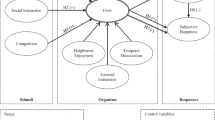Abstract
Applications of game theory to moral philosophy are impededby foundational issues and troublesome examples. In the first part of this paper,questions are raised about the appropriate game-theoretical frameworks for applications to moralphilosophy and about the proper interpretations of the theoretical devices employed inthese frameworks. In the second part, five examples that should be of particular interest to thoseinterested in the connections between ethics and game theory are delineated and discussed. Thefirst example comprises games in which there is an outcome unanimously preferred to the``solution'' of the game, appropriately defined. The second comprises games whose solution callsfor different players to employ different strategies. The third comprises games whosesolution calls for players to adopt mixed strategies. The fourth comprises games whose solutionrequires players to cycle among a variety of strategies. The fifth comprises games whose solutionrequires players to discriminate in morally inappropriate ways.
Similar content being viewed by others
REFERENCES
Bendor, J. and P. Swistak: 1997, 'The Evolutionary Stability of Cooperation', American Political Science Review 91(2), 290–307.
Bendor, J. and P. Swistak: 1998, 'Evolutionary Equilibria: Characterization Theorems and Their Implications', Theory and Decision 45(2), 99–159.
Binmore, K. G.: 1998, Game Theory and the Social Contract, Vol. 1(1994) Playing Fair, Vol. 2(1998) Just Playing, MIT Press, Cambridge, MA.
Boyd, R. and J. Lorberbaum: 1987, 'No Pure Strategy is Evolutionarily Stable in the Repeated Prisoner's Dilemma Game', Nature 327, 58–59.
Börgers, T. and R. Sarin: 1997, 'Learning Through Reinforcement and Replicator Dynamics', Journal of Economic Theory 77, 1–14.
Bush, R. and F. Mosteller, 1951, 'Stochastic Models for Learning', Psychological Review 58, 313–323.
Cross, J.: 1973, 'A Stochastic Learning Model of Economic Behavior', Quarterly Journal of Economics 87, 239–266.
Gauthier, D.: 1967, 'Morality and Advantage', Philosophical Review 76(4), 460–475.
Gintis, H.: 2000, Game Theory Evolving, Princeton University Press, Princeton.
Grim, P., G. Mar, and P. St. Denis: 1998, The Philosophical Computer, MIT Press, Cambridge, MA.
Kavka, G.: 1986, Hobbesian Moral and Political Theory, Princeton University Press, Princeton, NJ.
Knetsch, J. L.: 1989, 'The Endowment Effect and Evidence of Non-Reversible Indifference Curves', American Economic Review 79, 1277–1284.
Kuhn, Steven and Serge Moresi: 1995, 'Pure and Utilitarian Prisoner's Dilemmas', Economics and Philosophy 11, 123–133.
Kuhn, Steven: 1996, 'Agreement Keeping and Indirect Moral Theory', Journal of Philosophy 93, 105–128.
Knetsch, J. L. and J. A. Sinden: 1984, 'Willingness to Pay and Compensation Demanded: Experimental Evidence of an Unexpected Disparity in Measures of Value', Quarterly Journal of Economics 99, 131–139.
Lyons, J.: 1976, 'Ethical Relativism and the Problem of Incoherence', Ethics 86, 107–121.
Maynard Smith, J.: 1982, Evolution and the Theory of Games, Cambridge University Press, New York.
Nowak, M. and R.May: 1992, 'Evolutionary Games and Spatial Chaos', Nature 359, 826–829.
Nowak M. A, S. Bonhoeffer, and R. May: 1994, 'Spatial Games and the Maintenance of Cooperation', Proceedings of the National Academy of Sciences 91, 4877–4881.
Samuelson and Zeckhauser: 1988, 'Status Quo Bias in Decision Making', Journal of Risk and Uncertainty 1, 7–59.
Selten, R.: 1983, 'Evolutionary Stability in Extensive Two-Person Games', Mathematical Social Sciences 5, 269–363.
Sen, A.: 1967, 'Isolation, Assurance and the Social Rate of Discount', Quarterly Journal of Economics 81(1), 112–124.
Skyrms, B.: 2001, 'The Stag Hunt', Proceedings and Addresses of the American Philosophical Association 55(2), 31–41.
Skyrms, B.: 1999, 'Reply to Critics', Philosophy and Phenomenological Research 55(1), 243–254.
Skyrms, B}.: 1996, Evolution of the Social Contract, Cambridge University Press, Cambridge.
Skyrms, B.: 1994, 'Darwin Meets “The Logic of Decision”', Philosophy of Science 61, 503–528.
Skyrms, B. and J. Alexander: 1999, 'Bargaining with Neighbors: Is Justice Contagious?', Journal of Philosophy, 588–598.
Skyrms, B. and R. Pemantle: 2000, 'A Dynamic Model of Social Network Formation', Proceedings of the National Academy of Sciences 97(16), 9340–9346.
Sugden, R.: 1986, The Economics of Rights Cooperation and Welfare, Basil Blackwell, Oxford.
Taurek, J.: 1977, Philosophy and Public Affairs 2(1), 293–316.
Rights and permissions
About this article
Cite this article
Kuhn, S.T. Reflections on Ethics and Game Theory. Synthese 141, 1–44 (2004). https://doi.org/10.1023/B:SYNT.0000035846.91195.cb
Issue Date:
DOI: https://doi.org/10.1023/B:SYNT.0000035846.91195.cb




